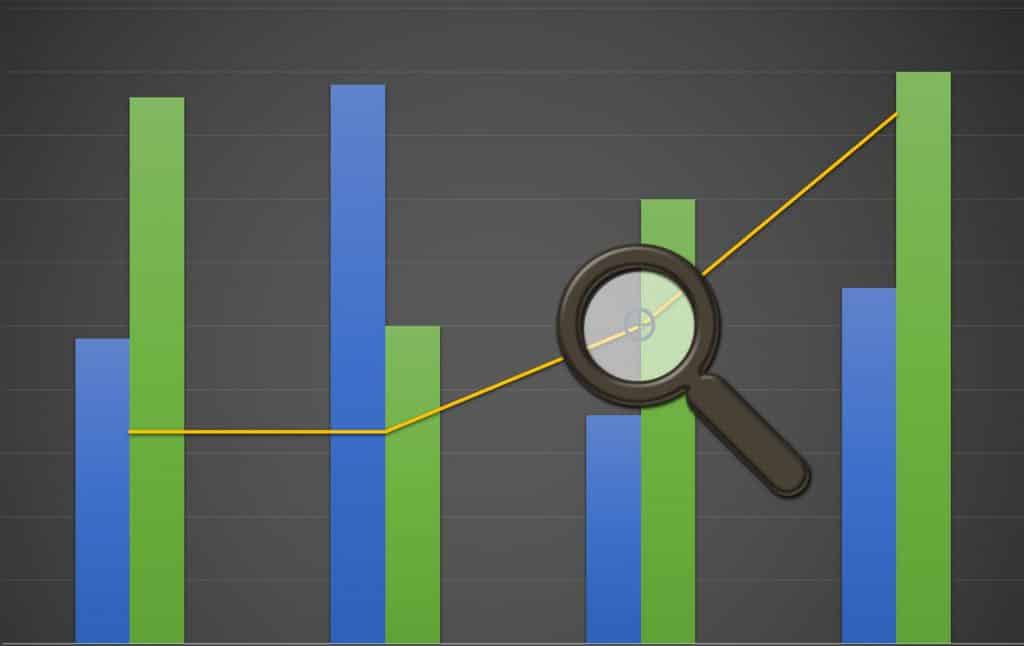Are you interested in investing your money into stocks and bonds? You often hear those two items paired together in a sentence, but what do they actually mean? They are both a form of investment, but the similarities stop there. Both of them have a different level of risks, levels of returns, and daily behaviours that you need to be prepared for. Before you invest, it’s important to know these differences to pick which ones are the best course of action for you. See below for an in-depth guide on stocks vs bonds and how they fit into your investment plans.
What Are Stocks?
Imagine, if you would, that someone brings you a pie they made and sets it down in front of you and 2 of your friends. Let’s say the pie is cut into 8 different slices.
The maker of the pie tells you that each slice is £1 each. So you choose to buy 3 slices, one of your friends buys 3 slices, and the other buys only 2. This is essentially the concept of a stock.
When you buy a stock, you purchase a small piece of ownership in that company. The more shares that you have in the company, the more ownership that you have over it.
The goal is to buy shares, wait for them to rise, then sell your investment to turn a profit.
For example, let’s say you decide to buy £100 worth of shares in Callaway Golf Company (ELY). For the sake of simple math, let’s say that Callaway shares are going for £20, so you end up with 5 shares.
As Callaway grows, so too will the value of your shares. Let’s say that over time, they end up experiencing a 50-per cent. So now, each share is worth £30 apiece. You decide to sell all of your shares for £150.
By buying your stocks low and selling high, you’ve turned a profit of £50. You bought them for £100 and sold them for £150. You can scan the stock market however you so choose, buying any stocks that you envision a legitimate return for!
What Are Bonds?
Instead of purchasing a piece of the company as you would with a stock, a bond is when you loan out your money to a business. This can help them grow and expand their business, getting their hands on the money they’d need (from you) to do so.
In return, the company you lent the bond to will pay you back the full amount with interest. Unlike stocks, bonds are more of a long-term play. They’ll help you make a bit more money over time. The more bonds you invest in, the more you’ll gain in return.
So let’s say that you buy a bond for £1,000 (just for the sake of simple math). Let’s say it pays you back 1% annual interest over the next 10 years. With that bond, you would make £10 in interest over the next decade.
When the 10 years has concluded on that bond, you will have made £100 in interest payments that you wouldn’t otherwise have made.
There are many variables to bonds. You can purchase ones with a duration of only a few days or ones with a duration of several decades. The interest rate varies as well, so be sure to find a balance that you’re comfortable with.
What Are the Risks Involved?
As you’ve already seen in this article, both stocks and bonds can have tremendous payouts for those that invest in them. However, there’s always a potential that either one does not do well, and you lose money on the whole deal. Here’s a bit more insight on that:
The Risks of Stocks
Earlier, we highlighted a scenario in which you would make money investing in shares from Callaway Golf. However, every stock that you purchase has risk involved, some more so than others.
All it takes is one setback from the company you’ve invested in to incur a loss. Back in April 2010, BP was flying high. They were seemingly doing everything right and their stocks climbed up to $60 in US Dollars (approximately 44 British pounds).
Then, almost out of nowhere, the deepwater horizon spill occurred. Over 3.19 million barrels of oil were spread throughout the Gulf Coast. As a result, their stocks fell 55%, meaning that investors lost over half of what they paid to buy BP stock in April.
Granted, most losses are not that significant. By educating yourself and reading investor books, you can limit your losses when you invest.
The Risk of Bonds
The ideology of bonds is sound. You lend a certain amount of money to a growing company, then they pay you back over time with interest. All is fair in the world.
But what if that company goes under before they’ve paid you back? What if they go bankrupt during the term of your bond? You may never get back your full investment entirely.
As you can see with both stocks and bonds, there are risks. However, you can minimize the risks of both by performing thorough research.
In the case of bonds, do your due diligence on any company you lend money to. If they’re shooting for the stars too quickly, they might overextend themselves and leave you to suffer a loss as a result.
Stocks Vs Bonds: Invest Your Money in Both
Now that you’ve seen a comparison of both stocks vs bonds, as well as the differences between the two, it’s time to use that information effectively.
For more financial advice, make sure to read this article on the 5 things that you need to do with your money once you’ve turned 20.
Be sure to circle back on our blog often to receive more information and guidance on economics, finance, banking, and so much more.
0